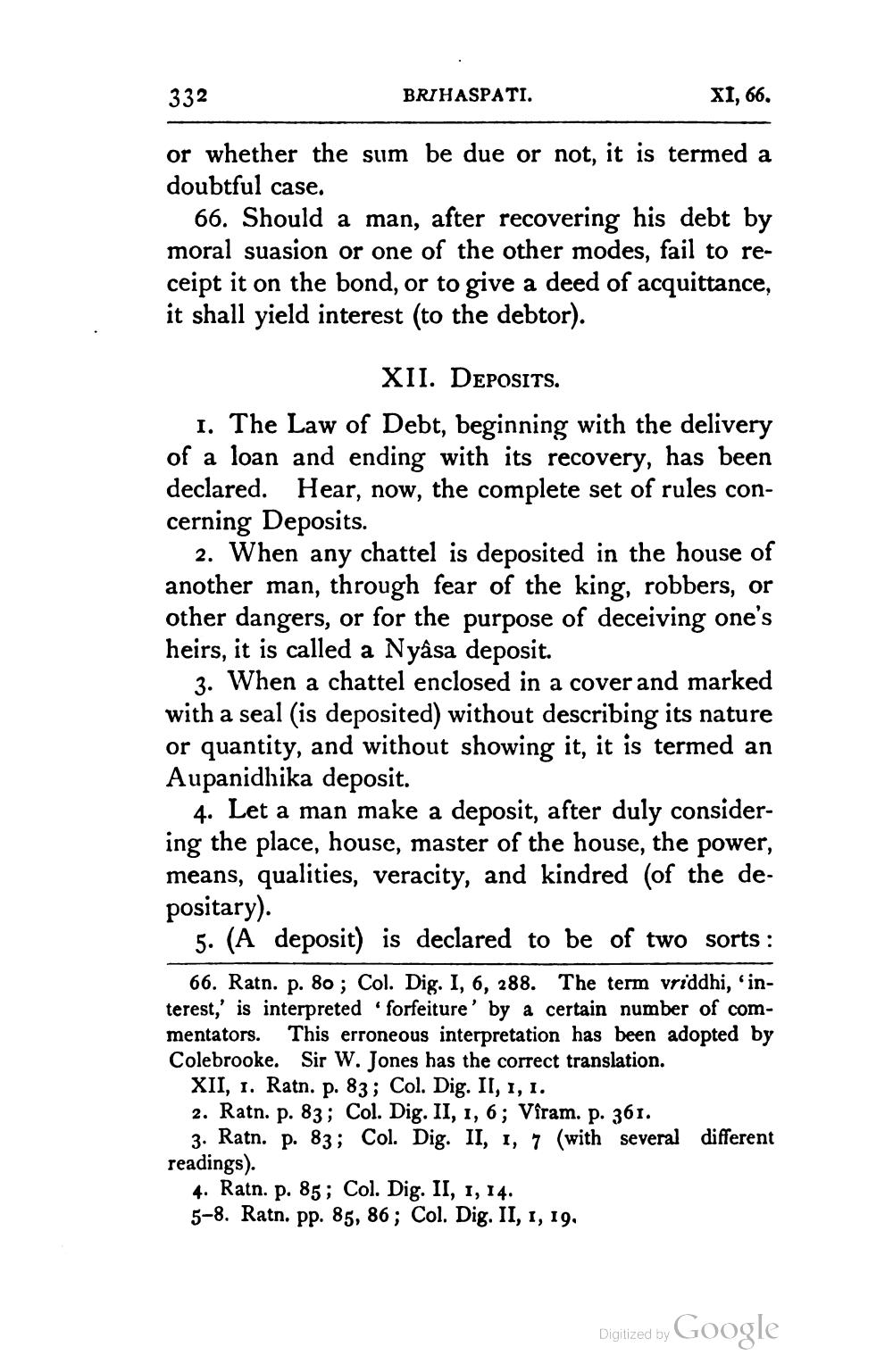________________
332
BRIHASPATI.
XI, 66.
or whether the sum be due or not, it is termed a doubtful case.
66. Should a man, after recovering his debt by moral suasion or one of the other modes, fail to receipt it on the bond, or to give a deed of acquittance, it shall yield interest (to the debtor).
XII. DEPOSITS. 1. The Law of Debt, beginning with the delivery of a loan and ending with its recovery, has been declared. Hear, now, the complete set of rules concerning Deposits.
2. When any chattel is deposited in the house of another man, through fear of the king, robbers, or other dangers, or for the purpose of deceiving one's heirs, it is called a Nyasa deposit.
3. When a chattel enclosed in a cover and marked with a seal (is deposited) without describing its nature or quantity, and without showing it, it is termed an Aupanidhika deposit.
4. Let a man make a deposit, after duly considering the place, house, master of the house, the power, means, qualities, veracity, and kindred (of the depositary).
5. (A deposit) is declared to be of two sorts : 66. Ratn. p. 80; Col. Dig. I, 6, 288. The term vriddhi, 'interest,' is interpreted forfeiture' by a certain number of commentators. This erroneous interpretation has been adopted by Colebrooke. Sir W. Jones has the correct translation.
XII, 1. Ratn. p. 83; Col. Dig. II, 1, 1. 2. Ratn. p. 83; Col. Dig. II, 1, 6; Viram. p. 361.
3. Ratn. p. 83; Col. Dig. II, I, 7 (with several different readings).
4. Ratn. p. 85; Col. Dig. II, 1, 14. 5-8. Ratn. pp. 85, 86; Col. Dig. II, 1, 19,
Digitized by Google




